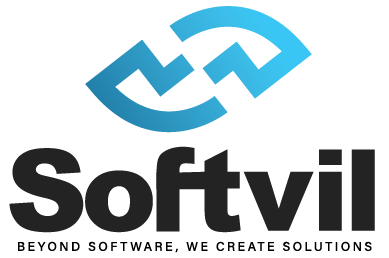Enterprise resource planning (ERP) systems stand at the forefront of transforming core business operations in today’s rapidly evolving business landscape. Among these systems, Microsoft Dynamics 365 ERP (D365 ERP) emerges as a powerhouse, offering a robust suite of integrated, cloud-based applications that cater to various business functions such as finance, operations, human resources, and customer relationship management. This advanced D365 ERP solution not only streamlines processes but also enhances efficiency and fosters data-driven decision-making across departments.
The adoption of ERP systems like D365 ERP is critical for businesses aiming to maintain a competitive advantage and adapt to ever-changing market demands. By centralizing data and automating routine tasks, ERP systems help organizations reduce errors, increase productivity, and improve overall operational efficiency. They also enable better collaboration among teams by providing a unified platform for information sharing. ERP integration is a pivotal aspect of D365 ERP, allowing seamless connectivity with other software tools, enhancing functionality, and expanding the scope of business processes that can be managed.
The purpose of this article is to delve into the capabilities and benefits of Microsoft Dynamics 365 ERP, exploring its key modules and functionalities, and the impact of ERP integration. We will examine how this comprehensive D365 ERP system can be customized and integrated with other tools to meet the specific needs of businesses, ultimately guiding leaders in making informed decisions about implementing D365 ERP in their own operations.
Understanding Microsoft Dynamics 365 ERP

What is Dynamics 365 ERP?
Microsoft Dynamics 365 ERP (D365 ERP) is a sophisticated enterprise resource planning system designed to integrate various business processes into one comprehensive system. As a crucial component of the ERP system Dynamics 365, it uses cloud technology to streamline management across departments, enhancing operational efficiency and data transparency. Key features of D365 ERP include automation of routine tasks, advanced data security, and real-time analytics, all accessible through a user-friendly interface.
Key Modules of D365 ERP
The ERP system Dynamics 365 provides several essential modules to cater to diverse business needs:
- Finance: Simplifies complex financial operations such as accounting, budget control, and comprehensive financial reporting.
- Operations: Enhances efficiency in supply chain management, manufacturing processes, and logistics.
- Human Resources (HR): Manages all aspects of HR from employee records and payroll to recruitment and performance management.
- Sales and Customer Service: Boosts customer engagement through better sales tracking and customer service management.
Benefits for Businesses
Adopting D365 ERP brings numerous benefits:
- Increased Efficiency: Automates business processes to minimize manual effort and maximize accuracy.
- Scalability: Scales smoothly with business growth, accommodating new processes and users without significant disruptions.
- Enhanced Insights: Provides valuable insights through its integrated analytics and reporting tools, enabling informed decision-making based on up-to-date data.
Overall, the ERP system Dynamics 365 equips organizations with the tools they need to unify their operations under a single cloud-based platform, promoting greater operational control and strategic insights across all levels of the enterprise.
Key Modules and Functionalities

Finance and Operations Management
The Dynamics ERP system offers a comprehensive finance module that handles everything from financial reporting and analytics to accounts payable and receivable, budgeting, and asset management. This module ensures precision in financial operations and strategic financial planning. Operations management is streamlined by integrating core processes such as procurement, production planning, and inventory management, enhancing operational efficiency and reducing costs.
Human Resources
The Human Resources module within Dynamics ERP system assists in automating routine HR tasks such as payroll, benefits management, and attendance tracking. It also supports more strategic HR functions like talent acquisition, learning management, and performance analytics. This helps HR departments to not only save time but also focus on workforce development and employee engagement.
Supply Chain Management
This module optimizes the supply chain from procurement to product delivery. Features such as demand forecasting, inventory management, and logistics planning enable businesses to reduce lead times, improve inventory accuracy, and ensure consistent supply chain operations.
Sales and Marketing
Dynamics ERP system enhances sales and marketing effectiveness by providing tools for customer management, sales forecasting, campaign management, and lead generation. This integration ensures that marketing strategies align closely with sales efforts, leading to improved customer acquisition and retention.
Customer Service
The customer service module provides functionalities like case management, service scheduling, and communication tracking. These tools help streamline customer service processes, enabling quick and effective responses to customer inquiries and issues, thus improving overall customer satisfaction.
Business Intelligence and Analytics
Embedded with Power BI, the Dynamics ERP system transforms data across all modules into actionable insights through interactive dashboards and reports. This enables organizations to make informed decisions quickly, based on real-time data analysis.
By integrating these modules, the Dynamics ERP system not only enhances operational control across various departments but also supports sustained business growth through streamlined processes and strategic data utilization.
Integration and Customization

Integration with Microsoft Products
Dynamics 365 ERP is designed to seamlessly integrate with a wide range of Microsoft products, enhancing both functionality and user experience. For example, it works closely with Microsoft Office 365, allowing users to access Excel, Word, and Outlook within the same interface. Integration with Microsoft Teams facilitates improved communication and collaboration by enabling teams to access ERP data directly within chat conversations. Additionally, integration with Microsoft Power BI provides advanced analytics capabilities, allowing users to create customized reports and dashboards directly from ERP data.
Customization Options
D365 ERP offers extensive customization options to tailor the system to the specific needs of each business. This customization can range from simple user interface changes to complex backend modifications. Businesses can develop custom modules using Microsoft Power Apps to address unique process requirements. Furthermore, D365 ERP supports custom workflows and automation that can be configured to match the specific operational processes of a company, ensuring that the system adapts to business rather than forcing the business to adapt to the system.
Importance of Integration and Customization
The ability to integrate seamlessly with other tools and customize its features is crucial in maximizing the efficiency and effectiveness of D365 ERP. This flexibility ensures that organizations can enhance their productivity by leveraging familiar tools and tailor the system to fit their evolving needs. As a result, businesses not only save on training costs due to the familiar Microsoft environment but also achieve greater alignment across various departments, leading to streamlined operations and improved decision-making.
By harnessing the power of integration and customization, D365 ERP helps businesses create a cohesive and efficient ecosystem that supports their specific operational requirements and strategic objectives.
Benefits of Microsoft Dynamics 365 ERP

Enhanced Operational Efficiency
The ERP system Dynamics 365 streamlines business processes by automating routine tasks and integrating various operational aspects into a unified platform. This consolidation reduces the time and effort spent on managing separate systems, thereby increasing overall operational efficiency.
Improved Collaboration and Communication
Dynamics 365 ERP enhances teamwork across departments by providing tools that facilitate better sharing of information and coordination of tasks. Integration with Microsoft Teams allows for real-time communication and updates, ensuring that everyone is on the same page.
Better Decision-Making Through Data Insights
With built-in analytics tools such as Power BI, the ERP system Dynamics 365 provides deep insights into business performance, enabling data-driven decision-making. Managers can access customized reports and dashboards that help identify trends, forecast outcomes, and make informed strategic decisions.
Scalability and Flexibility
Dynamics 365 ERP is highly scalable, supporting businesses as they grow and expand. Its flexible architecture allows for easy adaptation to new business processes or changes in operational scale, making it an ideal solution for evolving business needs.
Considerations for Implementation

Organizational Readiness
Before implementing Dynamics 365 ERP, it’s crucial to assess if the organization is ready for such a transition. This includes evaluating the current business processes, understanding the needs of different departments, and ensuring that the workforce is prepared for a new system.
Budget Considerations
The cost of implementing an ERP system can be significant. Businesses need to consider not only the initial investment in software and hardware but also ongoing expenses such as licenses, updates, and support services.
Training and Change Management
Successful ERP implementation requires comprehensive training and effective change management strategies. It is important to prepare employees for the transition to ensure they are comfortable and proficient with the new system.
Data Migration and Integration Challenges
Migrating existing data into a new ERP system and integrating it with other applications can be complex. It requires careful planning to ensure data integrity and system compatibility.
By understanding both the benefits and considerations of implementing an ERP system like Dynamics 365, businesses can better prepare for a successful integration that maximizes returns and enhances operational capabilities.
Conclusion
In conclusion, Microsoft Dynamics 365 ERP stands as a pivotal tool for businesses aiming to streamline their operations, enhance collaboration, and make informed decisions through comprehensive data insights. As we explored, this ERP system not only boosts operational efficiency but also integrates seamlessly with other Microsoft products, enhancing functionality and user experience. With its customizable nature, Dynamics 365 ERP accommodates the specific needs of each business, ensuring scalability and flexibility to adapt to changing market demands.
Choosing the right ERP solution and an ideal ERP consultant is critical for business success in today’s competitive landscape. Dynamics 365 ERP offers a robust, integrated solution that can transform how businesses operate, driving efficiency and growth. Businesses considering an upgrade or implementation of an ERP system should deeply consider Dynamics 365 ERP as a viable option. This system not only promises significant operational improvements but also provides the tools necessary for businesses to stay agile and responsive to industry shifts.
FAQs
Microsoft Dynamics 365 ERP is an enterprise resource planning system that integrates multiple business functions such as finance, operations, human resources, and customer relations into one comprehensive, cloud-based platform.
Dynamics 365 ERP automates and streamlines business processes, reduces manual errors, and ensures that information flows smoothly across departments, thereby enhancing overall operational efficiency.
Yes, Dynamics 365 ERP seamlessly integrates with other Microsoft products like Office 365, Microsoft Teams, and Power BI, enhancing productivity and providing users with a unified working experience.
Key modules include Finance and Operations Management, Human Resources, Supply Chain Management, Sales and Marketing, Customer Service, and Business Intelligence and Analytics.
Yes, Dynamics 365 ERP is highly customizable, allowing businesses to tailor features and workflows to fit their specific requirements and business processes.
About Softvil
Softvil is a premier provider of ERP consultation services, specializing in optimizing business processes through expert guidance in implementing top-tier ERP systems including SAP, IFS, and Microsoft Dynamics 365. With a strong focus on customization and integration, Softvil ensures that each ERP solution is perfectly tailored to meet the specific operational needs of its clients, enhancing efficiency and driving innovation. Their team of seasoned consultants boasts in-depth expertise across diverse industries, enabling them to offer comprehensive support from system selection and customization to deployment and ongoing maintenance. By leveraging leading ERP platforms like SAP, IFS, and Microsoft Dynamics 365, Softvil empowers businesses to streamline their operations, boost productivity, and achieve sustained growth.

